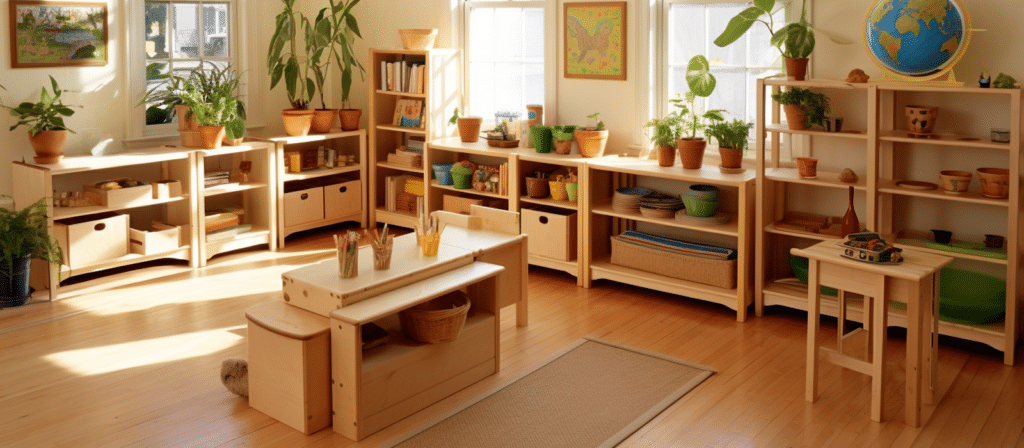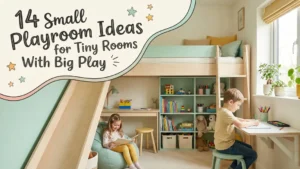Ever considered bringing the principles of Montessori into your daycare environment? Wondering how to cultivate an environment that fosters independence and a love for learning? Join us on a journey to discover the key steps in creating a Montessori-inspired daycare atmosphere that sparks curiosity and supports children’s holistic development.
Uncover the secrets to transforming your daycare into a space that embraces the Montessori philosophy, encouraging self-directed exploration and nurturing each child’s unique potential.
What is Montessori Education?
Before diving into the details of creating a Montessori inspired daycare environment, let’s first understand what Montessori education is all about. Montessori education is a child-centered approach that encourages children to be active, independent learners. It is based on the belief that children are naturally curious and have an innate desire to learn. Montessori classrooms are carefully prepared environments where children can explore, discover, and learn at their own pace. The focus is on fostering independence, self-discipline, and a love for learning.
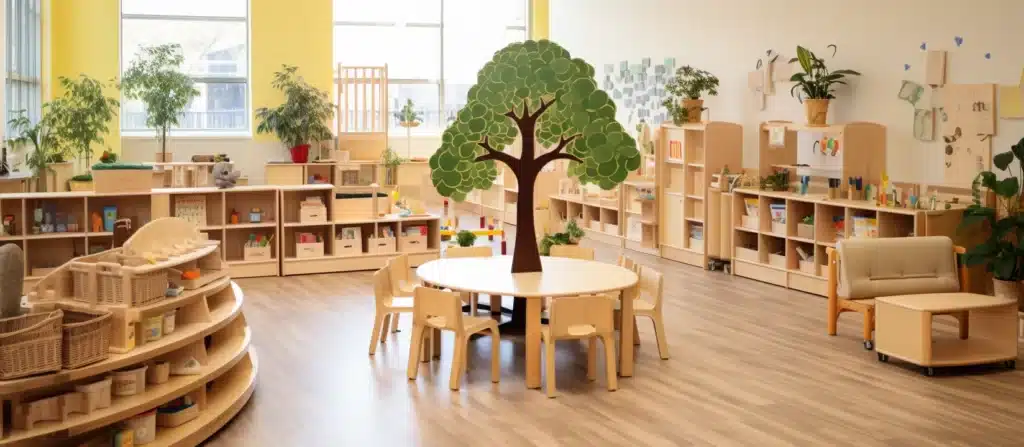
Creating a Prepared Daycare Environment
The first step in creating a Montessori inspired daycare environment is to set up a prepared environment. A prepared environment is a carefully designed space that allows children to explore and learn independently. It should be organized, clean, and aesthetically pleasing. Here are some key elements to consider when setting up your daycare environment:
- Furniture: Choose child-sized furniture that is comfortable and easy for the children to use. Avoid bulky furniture that may be difficult for the children to move or navigate around. At Beechair, we offer a range of child-friendly furniture that is designed with both comfort and functionality in mind.
- Materials and Activities: Provide a variety of developmentally appropriate materials and activities that promote hands-on learning and exploration. Montessori materials, such as sensorial materials, practical life activities, and math manipulatives, can be incorporated into your daycare environment to encourage independent learning and problem-solving skills.
- Order and Accessibility: Ensure that all materials and activities are organized and easily accessible to the children. Use low shelves or open containers to display materials, making it easy for the children to see and choose what they want to work on. Labeling shelves and containers with pictures or words can help promote independence and literacy skills.
- Natural Elements: Incorporate natural elements into your daycare environment, such as plants, natural light, and nature-inspired artwork. Natural elements create a calm and inviting atmosphere that promotes a sense of connection with the environment.
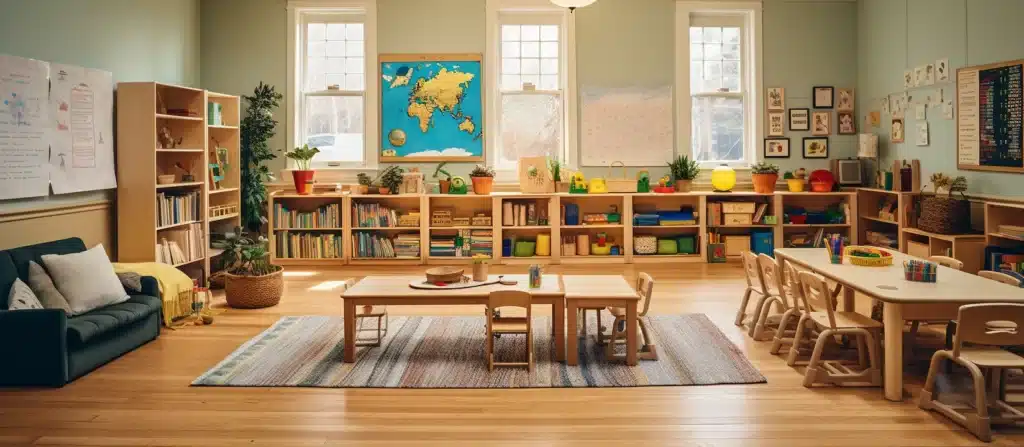
Encouraging Independence
One of the key principles of Montessori education is to foster independence in children. By creating a daycare environment that promotes independence, you are helping children develop essential life skills and a sense of confidence. Here are some strategies to encourage independence in your daycare setting:
- Self-Care Stations: Set up self-care stations where children can independently take care of their personal needs, such as washing hands, dressing, and toileting. Provide child-sized sinks, mirrors, and low hooks for hanging jackets and bags.
- Child-Led Routines: Establish child-led routines that give children the opportunity to make choices and take responsibility for their own actions. For example, create a daily schedule that allows children to choose their activities and move freely between different areas of the daycare.
- Practical Life Activities: Introduce practical life activities, such as pouring, sweeping, and buttoning, into your daycare environment. These activities not only promote independence but also help develop fine motor skills and concentration.
- Encourage Problem-Solving: Allow children to solve problems on their own before intervening. Offer guidance and support when needed, but give children the space to learn from their mistakes and find their own solutions.
Promoting a Love for Learning
In a Montessori inspired daycare environment, the focus is not just on academics but also on fostering a love for learning. Here are some strategies to promote a love for learning in your daycare setting:
- Follow the Child’s Interests: Pay attention to the individual interests and passions of each child and tailor the activities and materials accordingly. This personalized approach to learning will help children stay engaged and motivated.
- Create a Language-Rich Environment: Surround children with books, storytelling, and meaningful conversations. Read aloud to them regularly and encourage them to express their thoughts and ideas through language.
- Outdoor Exploration: Provide ample opportunities for outdoor play and exploration. Nature offers endless learning possibilities and stimulates a sense of wonder and curiosity in children.
- Encourage Collaboration: Foster a sense of community and collaboration among the children. Encourage them to work together, share ideas, and help one another. This promotes social skills, empathy, and a sense of belonging.
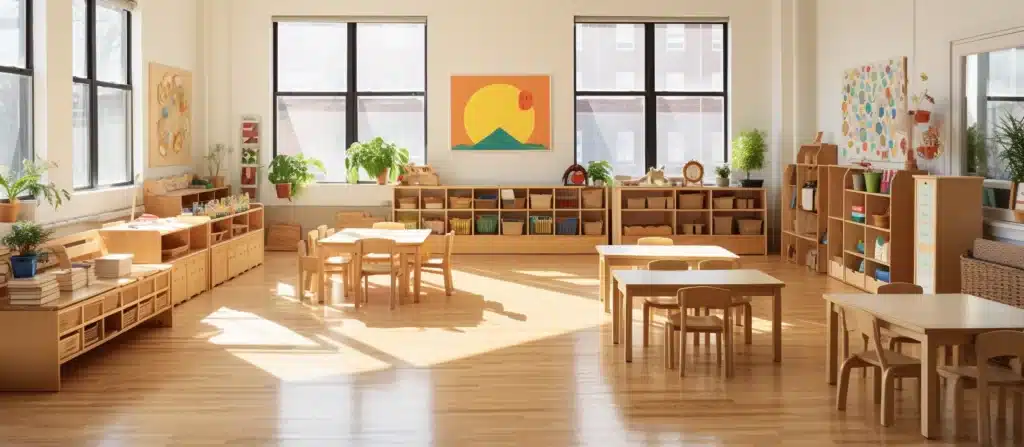
Conclusion
Creating a Montessori inspired daycare environment requires thoughtful planning and attention to detail. By setting up a prepared environment, encouraging independence, and promoting a love for learning, you can create a nurturing and enriching environment for the children in your care. Remember, the goal is not just to provide childcare but to create an environment that supports the holistic development of each child. Embrace the principles of Montessori education and watch as the children thrive and flourish in your daycare setting.

